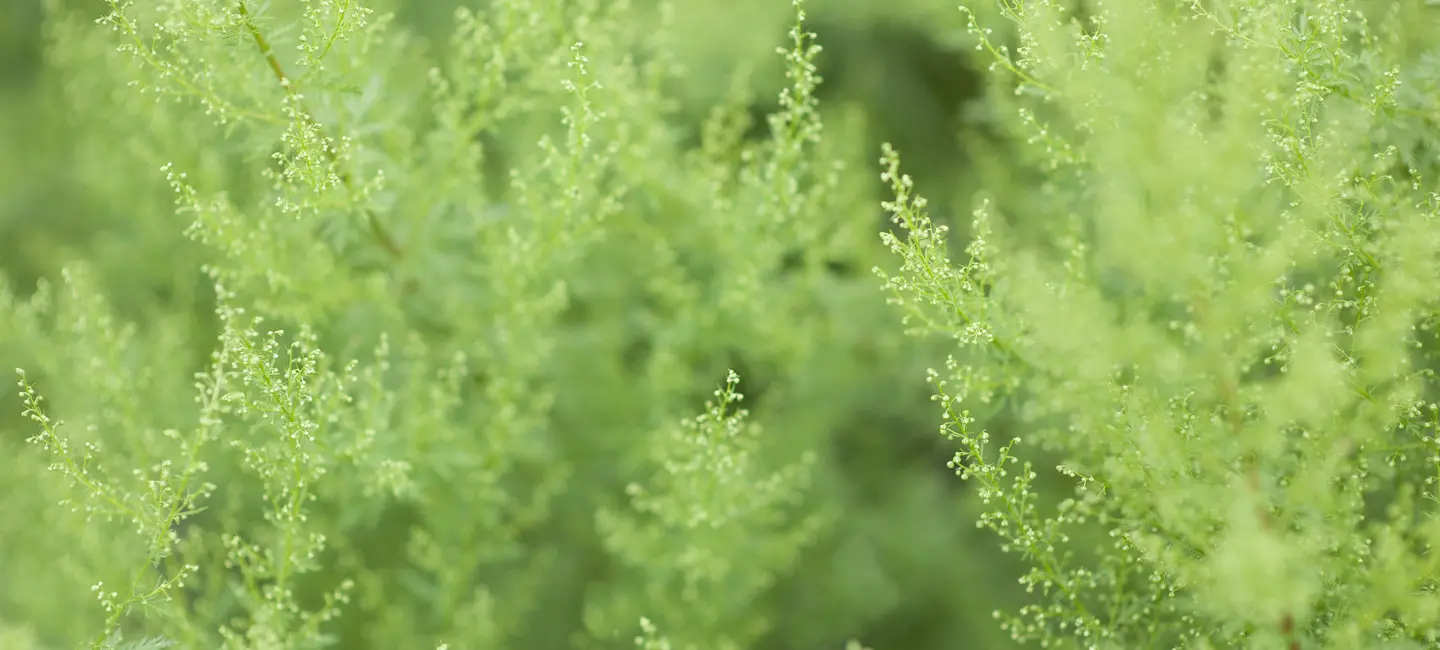
Sweet Annie (Artemisia annua) is a plant used in Traditional Chinese Medicine (TCM). The parts that grow above the ground are used to make medicine.
Sweet Annie contains a chemical called artemisinin, which seems to act against the parasites that cause malaria. Some drug manufacturers make anti-malarial drugs from artemisinin that they have modified in the lab.
People use Sweet Annie for hay fever, malaria, osteoarthritis, and many other conditions, but there is no good scientific evidence to support these uses.
Don't confuse Sweet Annie with Artemisia herba-alba, mugwort, wormseed, or wormwood. These are not the same. Also, the chemical made from Sweet Annie that is used in prescription drugs for malaria is not covered in this summary.
Is It Effective?
NatMed Pro rates effectiveness based on scientific evidence according to the following scale: Effective, Likely Effective, Possibly Effective, Possibly Ineffective, Likely Ineffective, Ineffective, and Insufficient Evidence to Rate.
- Hay fever. Applying Sweet Annie under the tongue seems to help prevent seasonal allergies caused by pollen from the Artemisia species.
There is interest in using Sweet Annie for a number of other purposes, but there isn't enough reliable information to say whether it might be helpful.
Is it Safe?
When taken by mouth: Sweet Annie is possibly safe when used short-term. Side effects might include upset stomach and vomiting. Liver damage has also been reported in a small number of people taking Sweet Annie tea or extracts.
When placed under the tongue: Sweet Annie is possibly safe when used for up to 32 weeks.
When applied to the skin: There isn't enough reliable information to know if Sweet Annie is safe or what the side effects might be.
Special Precautions & Warnings:
Pregnancy and breast-feeding: There isn't enough reliable information to know if Sweet Annie is safe to use when pregnant or breast-feeding. Stay on the safe side and avoid use.
Allergy to ragweed and related plants: Sweet Annie may cause an allergic reaction in people who are sensitive to the Asteraceae/Compositae family. Members of this family include ragweed, chrysanthemums, marigolds, daisies, and many others.
Liver problems: Sweet Annie might cause liver problems, even in healthy people. Taking Sweet Annie might make liver problems worse. People with a history of liver problems should avoid taking Sweet Annie.
Medications changed by the liver (Cytochrome P450 2B6 (CYP2B6) substrates)
Interaction Rating=Moderate Be cautious with this combination.
Some medications are changed and broken down by the liver. Sweet Annie might change how quickly the liver breaks down these medications. This could change the effects and side effects of these medications.
Medications changed by the liver (Cytochrome P450 3A4 (CYP3A4) substrates)
Interaction Rating=Moderate Be cautious with this combination.
Some medications are changed and broken down by the liver. Sweet Annie might change how quickly the liver breaks down these medications. This could change the effects and side effects of these medications.
Medications that can harm the liver (Hepatotoxic drugs)
Interaction Rating=Moderate Be cautious with this combination.
Sweet Annie might harm the liver. Some medications can also harm the liver. Taking Sweet Annie along with a medication that can harm the liver might increase the risk of liver damage.
Herbs and supplements that might harm the liver: Sweet Annie might harm the liver. Taking it with other supplements that can also harm the liver might increase the risk of liver damage. Examples of supplements with this effect include garcinia, greater celandine, green tea extract, kava, and kratom.
There are no known interactions with foods.
There isn't enough reliable information to know what an appropriate dose of Sweet Annie might be. Keep in mind that natural products are not always necessarily safe and dosages can be important. Be sure to follow relevant directions on product labels and consult a healthcare professional before using.
Absinthe Sauvage, Ajenjo Silvestre, Annual Mugwort, Annual Wormwood, Armoise Amère, Armoise Annuelle, Artémise, Artemisia annua, Artemisia, Artemisinin, Chinese Wormwood, Ching-hao, Herba Artemisiae Annuae, Herbe aux Cent Goûts, Huang Hua Guo, Qing Hao, Qinghaosu, Sourcil de Lune, Sweet Sagewort, Sweet Wormwood.
Information on this website is for informational use only and is not intended to replace professional medical advice, diagnosis, or treatment. While evidence-based, it is not guaranteed to be error-free and is not intended to meet any particular user’s needs or requirements or to cover all possible uses, safety concerns, interactions, outcomes, or adverse effects. Always check with your doctor or other medical professional before making healthcare decisions (including taking any medication) and do not delay or disregard seeking medical advice or treatment based on any information displayed on this website.
© TRC Healthcare 2024. All rights reserved. Use and/or distribution is permitted only pursuant to a valid license or other permission from TRC Healthcare.
